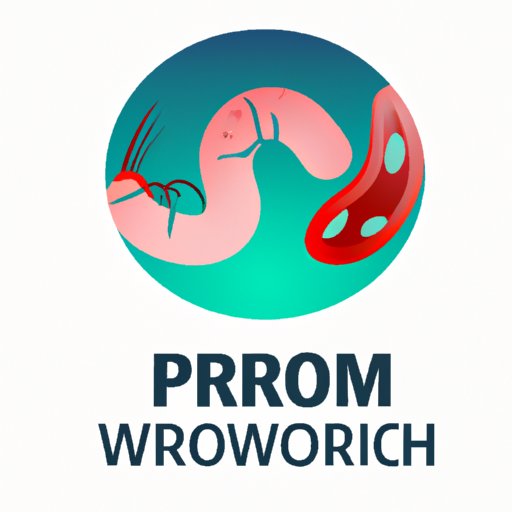
Introduction
Pinworm infections are one of the most common parasitic infections in the United States, affecting millions of people every year. While they are not usually dangerous, they can be uncomfortable, disruptive, and even embarrassing. To protect yourself and your family, it’s important to understand what pinworms are, how they are contracted, and what you can do to prevent and treat an infection.
Causes and Symptoms of Pinworm Infection
Pinworms are contracted by ingesting tiny, microscopic eggs that are found in contaminated food, water, or objects like doorknobs, toys, and clothing. Once inside the body, the eggs hatch in the small intestine and mature into adult worms. These worms then migrate to the rectum, where they lay eggs that cause intense itching and discomfort. This itching can be especially bad at night, leading to disrupted sleep and irritability.
The Lifecycle of Pinworms
The lifecycle of pinworms begins when a person ingests the eggs, which then hatch in the small intestine. The larvae travel through the digestive tract and invade the large intestine, where they mature into adult worms. These adults mate and lay eggs, which are passed out of the body in feces. The eggs can then contaminate objects and surfaces, leading to further infections. The lifecycle can repeat every 2-4 weeks.
Tips for Preventing Pinworm Infection
The best way to prevent pinworm infection is to practice good hygiene, especially hand hygiene. Wash hands frequently with soap and water, especially after using the bathroom, handling objects or surfaces in public places, and before eating or preparing food. Clean your living environment regularly, especially surfaces and items that may be contaminated. Wash clothing and bedding in hot water, and avoid sharing these items with others. Finally, make sure to properly handle and cook food to prevent ingestion of pinworm eggs.
Understanding the Risks of Pinworms for Children
Children are at a greater risk of pinworm infection due to their tendency to put hands in their mouths and not practice good hygiene. Parents and caregivers should regularly inspect children’s bedding and wash their hands frequently. Children should also be taught to properly wash their hands, avoid sharing objects that may be contaminated, and practice good food hygiene.
Medications for Treating Pinworm Infection
There are several effective medications available for treating pinworm infection, both over-the-counter and prescription. These medications work by killing the adult worms, though they do not kill the eggs. Some common medications include mebendazole, pyrantel pamoate, and albendazole. It’s important to follow the instructions carefully and take the full course of medication to ensure complete eradication of the worms.
Natural Remedies for Pinworms
While traditional medications are the most effective way to treat pinworms, some people prefer natural remedies. These can include herbs like garlic, wormwood, and clove, as well as supplements like probiotics and vitamin C. While these remedies have not been extensively studied, they may be helpful in combination with traditional treatments. However, speak to your doctor before using natural remedies to ensure their safety.
Conclusion
Pinworm infection is a common annoyance that affects many people every year. By understanding the causes, symptoms, and prevention strategies for pinworms, you can protect yourself and your family from this uncomfortable infection. If you suspect you or someone in your household has pinworms, speak to your doctor for proper diagnosis and treatment.





